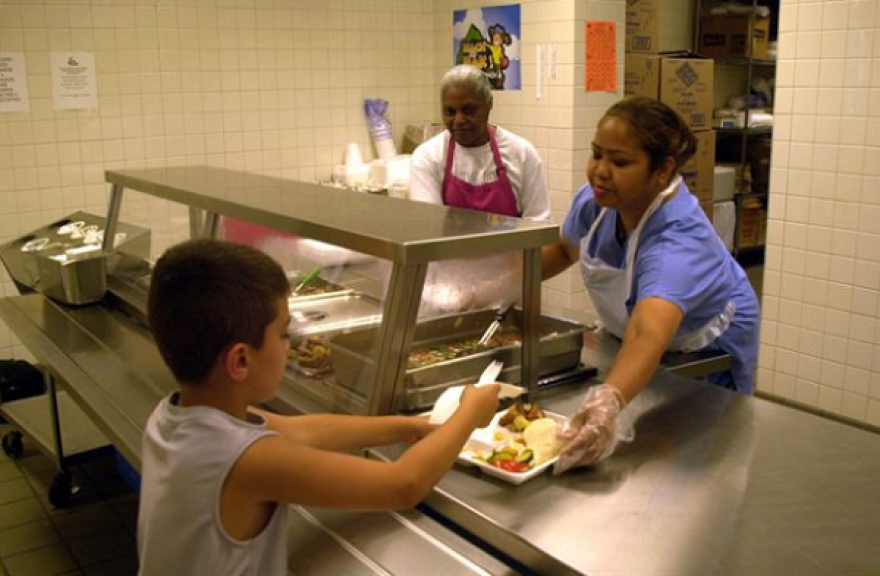Some children who rack up debt paying for lunch in their school cafeterias face a sudden swap when their hot meals are substituted for a cold sandwich or just a serving of fruit and vegetables and a cup of water.
They face “lunch shame” and even skip meals out of embarrassment after being identified as a reduced-lunch recipient. Lunch debt adds up as the school year progresses, and Durham public schools were owed more than $100,000 by Thanksgiving this year.
Host Frank Stasio talks to , graphic designer and activist, who started a GoFundMe campaign to . She says the community response to her campaign was extremely positive.
He also speaks with , director of research and innovation at North Carolina’s Food Insight Group, about why this kind of stopgap solution is not enough to stop local towns from continuously having to bail out kids in the cafeteria.
INTERVIEW HIGHLIGHTS:
Linden on how the school lunch program works:
School lunch has to operate independently from the rest of the school system. They have to operate essentially as a private business. And they're expected to cover all their expenses – from the cost of food to labor to indirects such as water and gas –which they pay to the school system itself. And as such they have to operate with very thin margins, because most of their funding is coming from the federal level and reimbursement rates for free, paid and reduced-price meals are relatively low.
Rebekah on the scope of Durham's school lunch debt:
For me the seed for this idea was Philando Castile's memorial fund . [The fund] was to pay down–he was a teacher – to pay down his school lunch debt. And I knew there were some other organizers who'd done this previously in Durham. So I called Jim Keaton, the director of nutrition services at Durham Public Schools. I first thought it would just be a few thousand dollars. And when he told me the total deficit stating only this school year … Is already $103,000 I was shocked. The first goal was to raise $4,500 for the reduced-lunch students. And I met that goal in 12 hours. So that was a signal to me that this was something that's important to Durham and to our community.
Rebekah on what happens when student accounts run out:
I talked to a friend who was a middle school teacher … She noticed that there are some kids who just don't eat all day, because they have an overdue account, and then they get a cold lunch. And the other students in the cafeteria start noticing what that means. So instead of eating the cold lunch, they just opt out.
Linden on the policy challenges of fixing school lunch debt:
At the end of the day, there's not enough money in the system to do school lunch right ... If math and science and English are an important part of the school day and we don't charge extra for them, I would argue that school lunch should be exactly the same way. And we should be figuring out a way at the policy level to make school lunch part of the school day so it's equitable and it's servicing the needs of the whole student body.
Through Reach NC Voices, an initiative of EducationNC, you can participate in the conversation by texting LUNCH to REACH (73224) or by responding to the survey question below.



